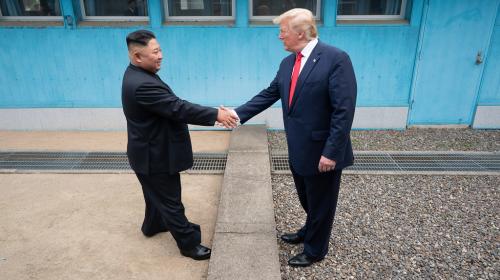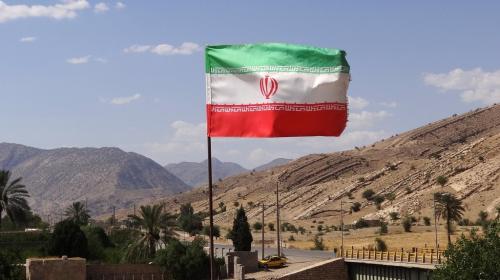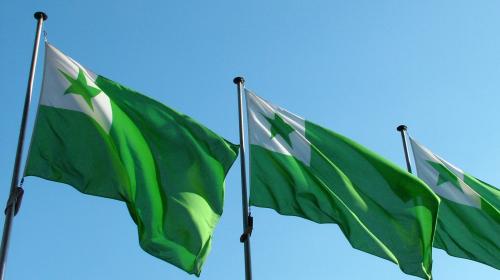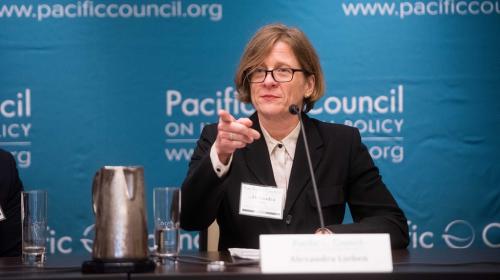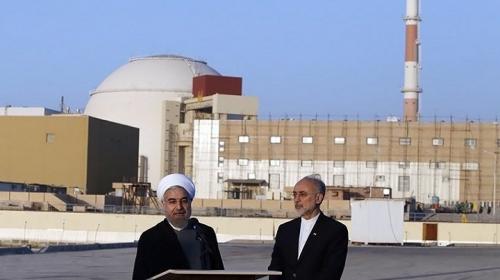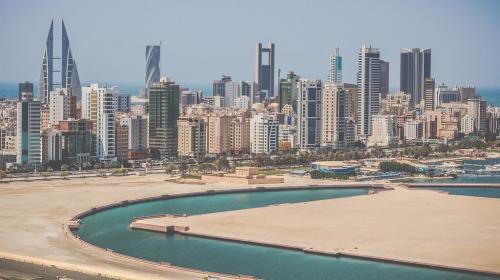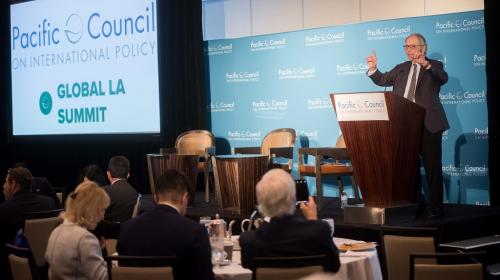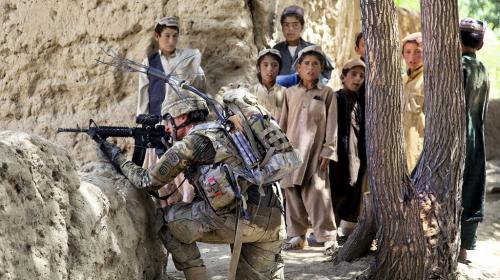The Pacific Council has partnered with a new organization called the Leadership Council for Women in National Security, which has garnered pledges from 15 presidential candidates to seek gender parity in their senior-level national security appointments. Learn more about the organization and hear from co-founder Ambassador Gina Abercrombie-Winstanley.
The June 30 meeting between Trump, Kim, and Moon shows that North Korea’s transition to a “normal country” continues, writes Jongsoo Lee.
Get to know our current crop of Junior Fellows! Next up: Leah James from USC.
Tactics such as the June 14 attacks on two tankers in the Gulf of Oman might allow Tehran to ultimately achieve some “soft compromises” in talks with the Trump administration, including the de-escalation of regional tensions and the easing of some restrictions to allow modest trade between Iran and the rest of the world, writes Banafsheh Keynoush.
Those of us who optimistically believe in technical and social progress cannot afford to remain on the fence in terms of globalism—in the building bridges across cultures sense of the word—but rather need to reignite a sense of hope about the world and humanity’s common fate, writes Alex Alben.
Our 2019 Global Los Angeles Summit featured discussions about LA infrastructure leading up to the 2028 Olympics, freedom of the press, and the diversity of Angelenos. Read highlights from the day’s discussions.
Trump's new Iran sanctions have put airstrikes on hold — but nuclear risks remain and available measures to reduce these dangers must not be ignored, writes Bennett Ramberg.
Palestinians know that unless there is a political horizon that provides for an end to the occupation and the freedom and independence they need to grow their economy, they will not prosper, write Mel Levine and James Zogby.
Watch Pacific Council President and CEO Dr. Jerrold D. Green's remarks at our 2019 Global LA Summit and a video featuring USC Viterbi students who traveled to a refugee camp in Greece and invented products to solve the challenges they witnessed on the ground.
Following a year of research in conjunction with the Pacific Council, the project to Strategically Protect Soft Networks offers this white paper exploring various possible policy options for better insulating local allies of the U.S. military and diplomatic community in conflict zones abroad.


